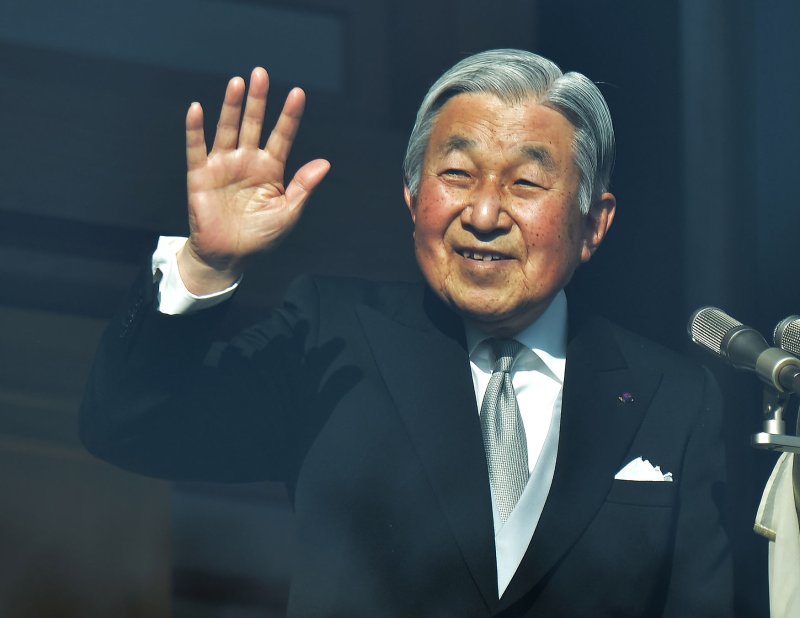May 19 (UPI) -- Japan's Cabinet announced Friday it approved a bill allowing Emperor Akihito to abdicate, opening a path for his son to succeed him.
The bill still requires parliamentary approval and only applies to the current situation, in which Akihito, 83, announced in May that he and Empress Michiko, 81, would curtail public appearances due to declining health.















